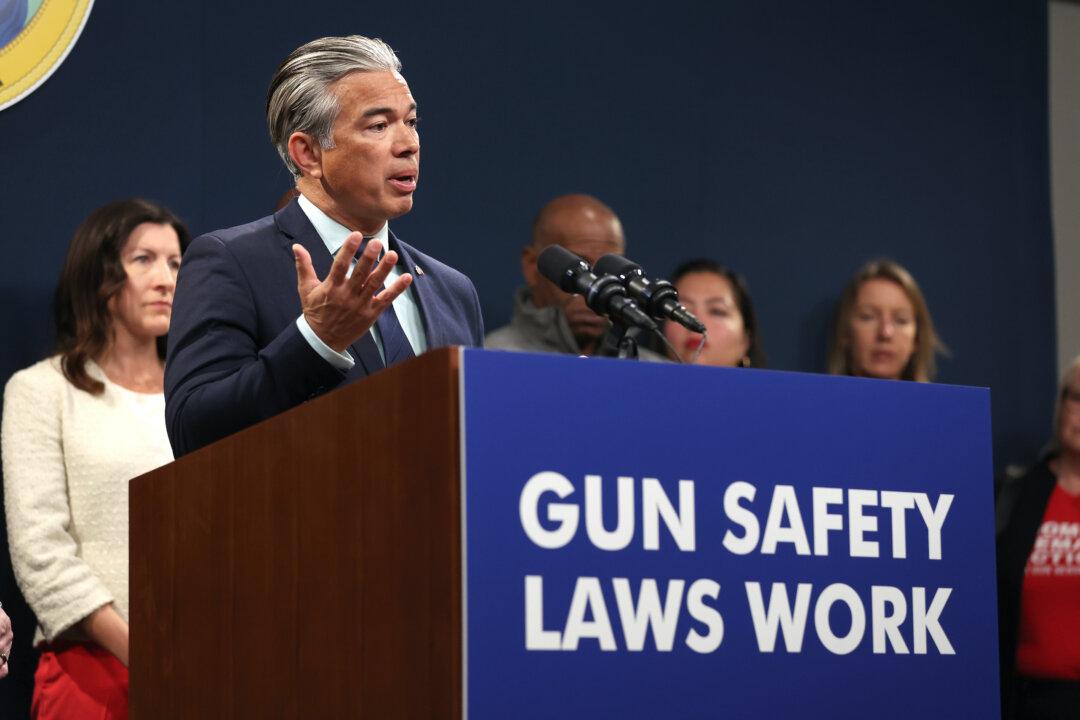A collection of gun-rights groups and seven individuals sued California state, county, and local law enforcement agencies and officials over the Golden State’s policies on the concealed carry of weapons (CCW) on Dec. 4.
The Second Amendment Foundation, the California Rifle & Pistol Association, Gun Owners of America, the Gun Owners Foundation, Gun Owners of California, and seven citizens sued California Attorney General Rob Bonta, Los Angeles County Sheriff Robert Luna, and Chief Colleen Flores, the La Verne, California, chief of police, as individuals and in their roles as heads of their respective agencies.





